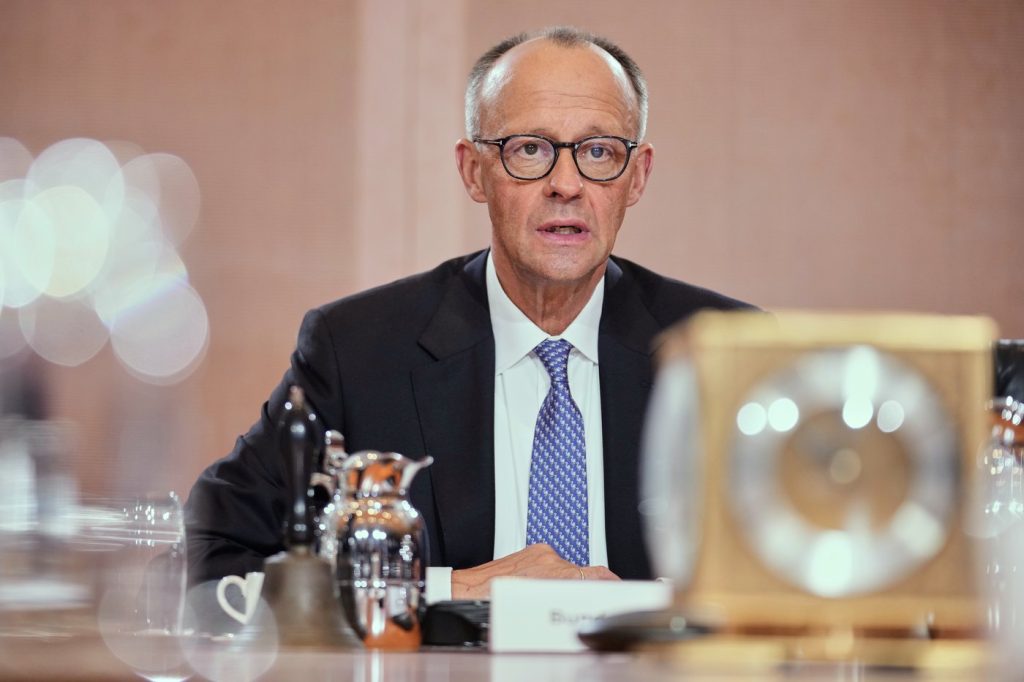BERLIN (AP) — Friedrich Merz made his debut in international affairs on Wednesday as Germany's new chancellor. Merz announced immediate plans to collaborate with allies France and Poland to present a unified European stance on supporting Ukraine and countering U.S. President Donald Trump's trade war. This strategic partnership is aimed at reinforcing the European Union's position against external pressures, particularly from the U.S. and the ongoing conflict with Russia.
Both Merz and French President Emmanuel Macron are strong proponents of the European Union, and their collaboration is anticipated to bolster resistance from the 27-member bloc against Trump’s policies and Russia's actions in Ukraine. The synergy between Germany and France, historically the backbone of the EU, has encountered challenges in recent months as leaders in both nations grappled with domestic situations.
Merz and Macron's aim is to revitalize this critical relationship during a pivotal moment, as both Trump and Russian President Vladimir Putin exert their influence on Europe, prompting the EU to reassess its security strategies. Merz’s foreign visits came shortly after his historic defeat in the first round of voting in the German parliament—a significant event, as no post-World War II candidate for German chancellor had previously failed to secure a first-round win. However, he ultimately succeeded in the second round.
Newly elected German chancellors typically emphasize European unity by visiting key neighboring countries immediately upon taking office. French Foreign Minister Jean-Noël Barrot stated that Merz and Macron's meeting aims to reignite what he referred to as “the French-German motor.” He expressed optimism that the relationship between Paris and Berlin would be more straightforward under Merz compared to his predecessor. France is especially seeking German support for increased EU defense spending due to perceived threats to European security posed by Russia and concerns regarding Trump’s shifting focus toward China.
On Wednesday, Merz is expected to hold joint news conferences with Macron and Polish Prime Minister Donald Tusk. Macron, along with U.K. Prime Minister Keir Starmer, has recently organized summits with European leaders to discuss Ukraine's situation and broader European security concerns, particularly in light of Trump’s maneuvers that aimed to exclude Europe from negotiations concerning Russia and Ukraine.
The timing of these stops in Paris and Warsaw holds significant historical importance, coinciding with the 80th anniversary of Nazi Germany's unconditional surrender in World War II. Macron's meeting with his third German chancellor during his presidency comes loaded with historical symbolism, representing a journey from a past marred by conflict between two nations that were once adversaries in both World Wars.
The First World War ended with an armistice on a railway car north of Paris, a location that became historically poignant when Adolf Hitler used the same railway car to accept France's capitulation in 1940 after Germany’s successful invasion. The current discussions between Merz and Macron signify an important step in solidifying European unity and collaboration amidst an evolving geopolitical landscape.











